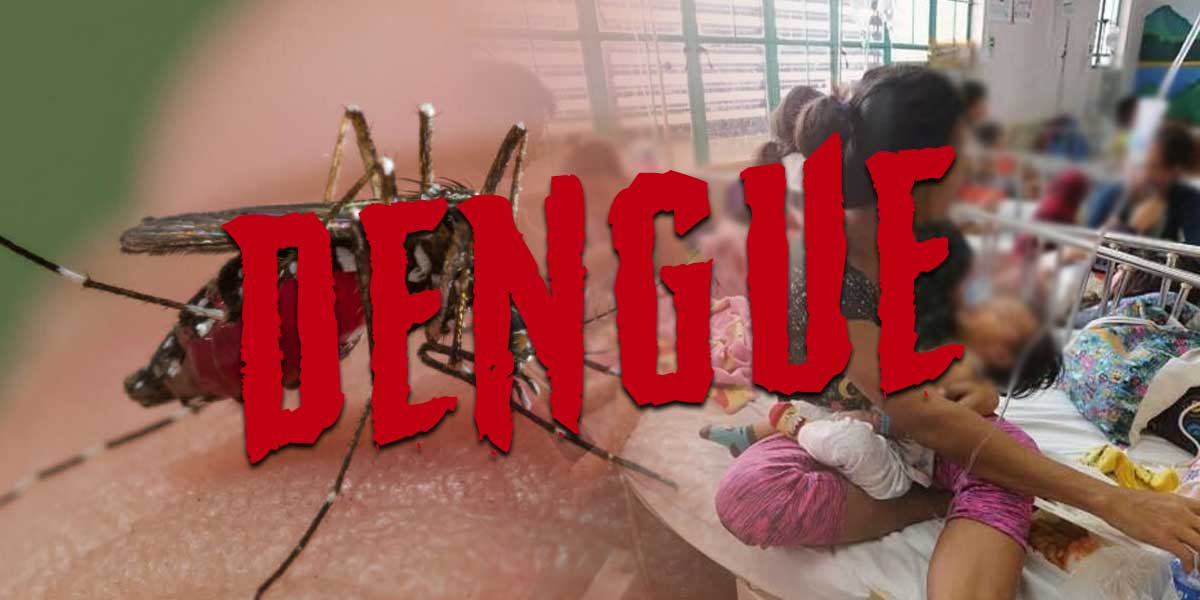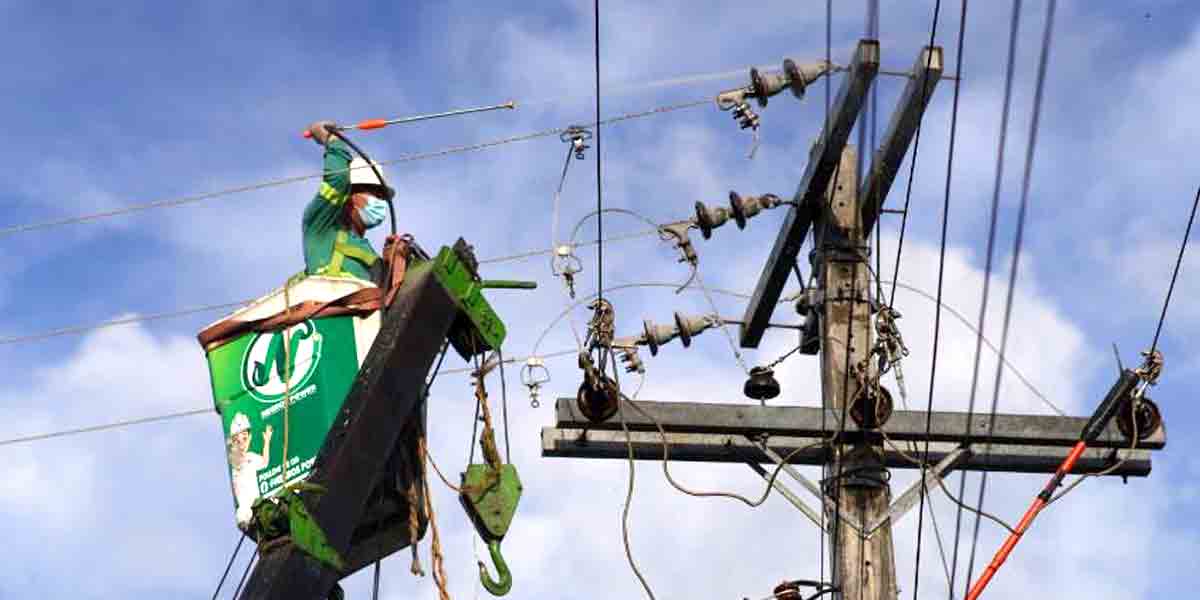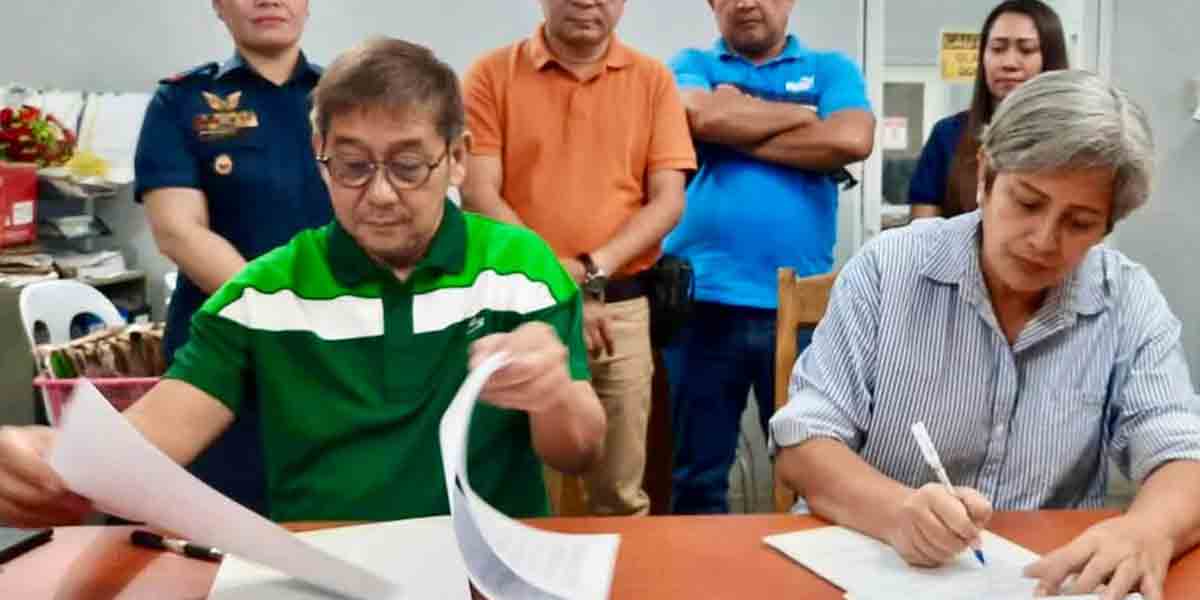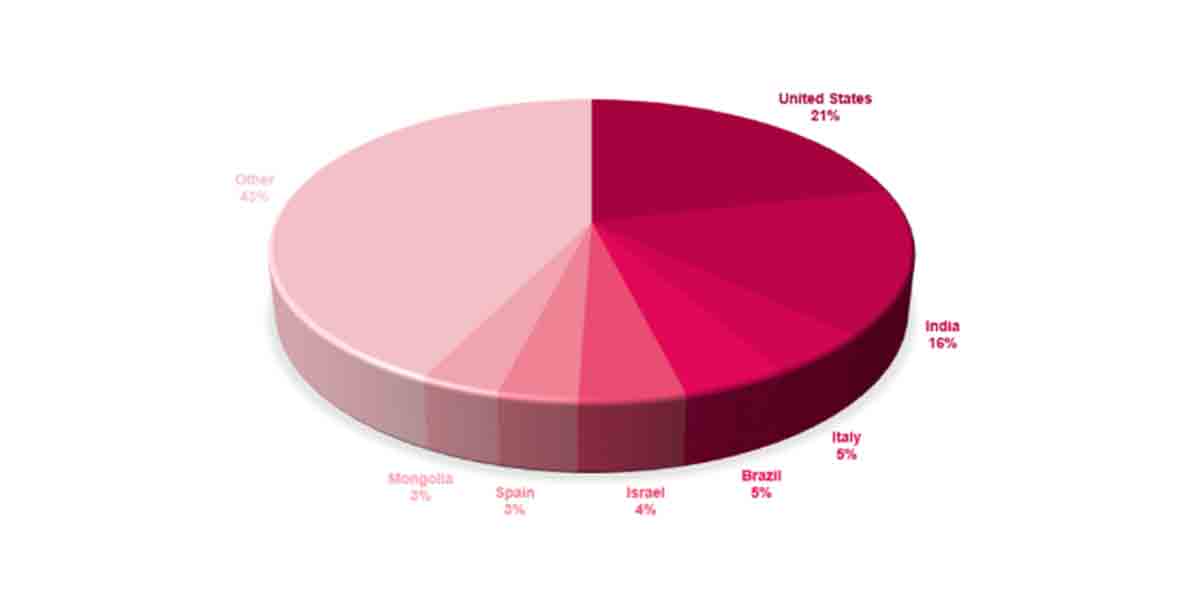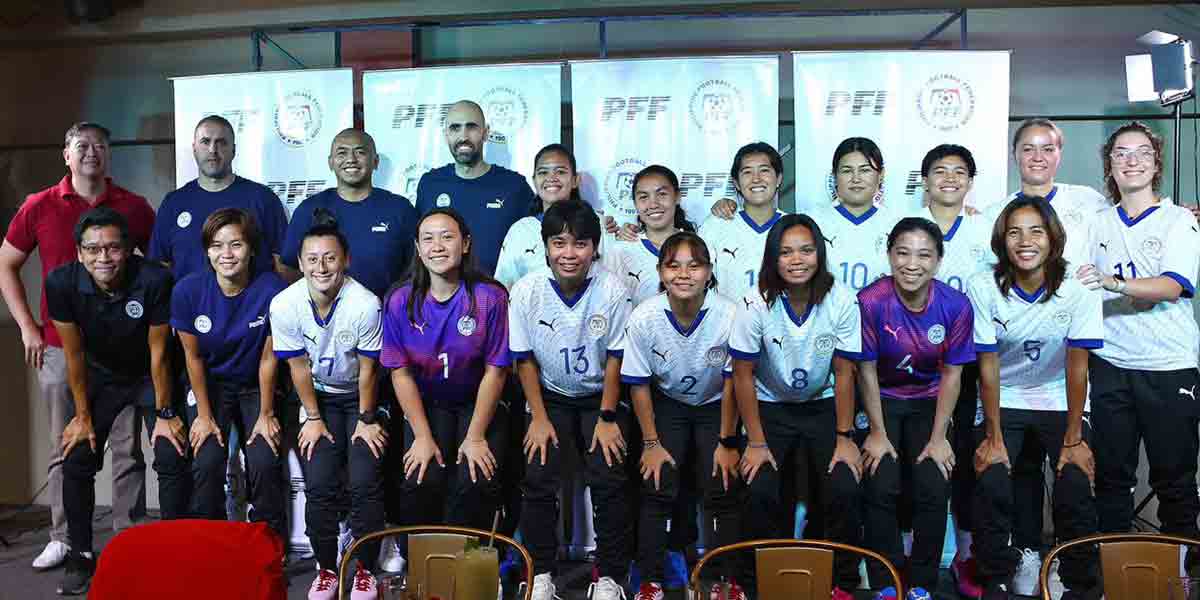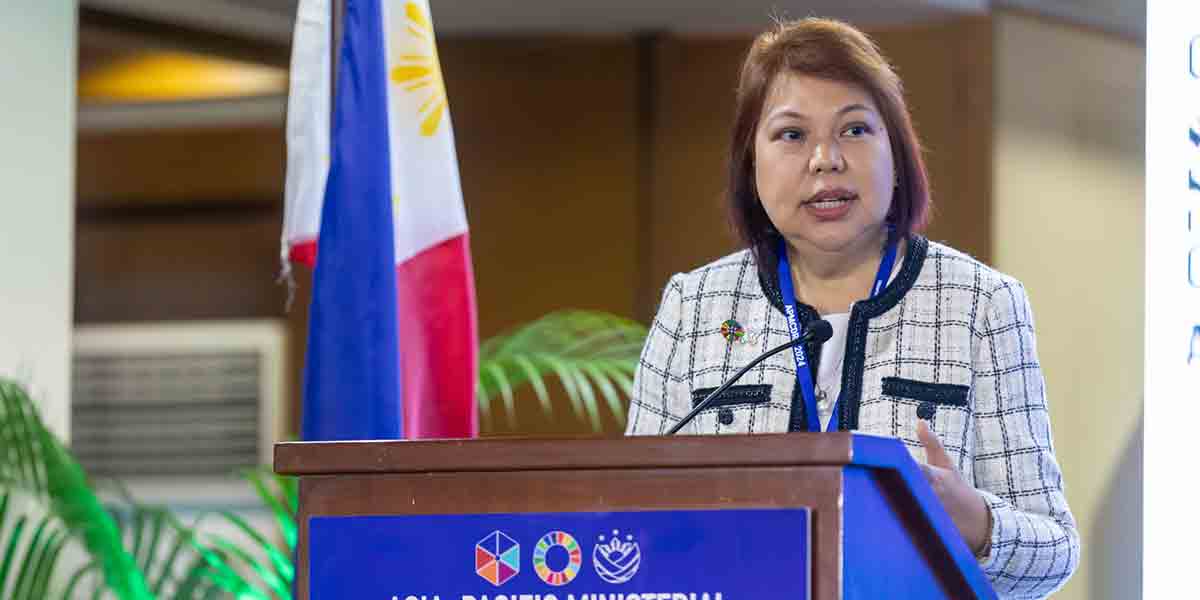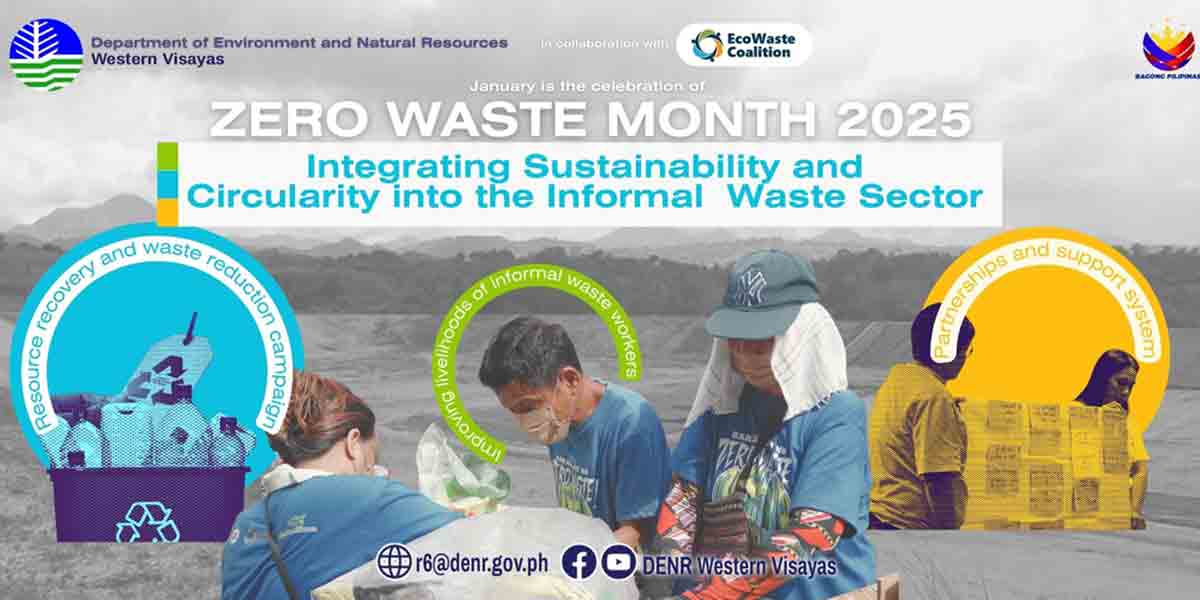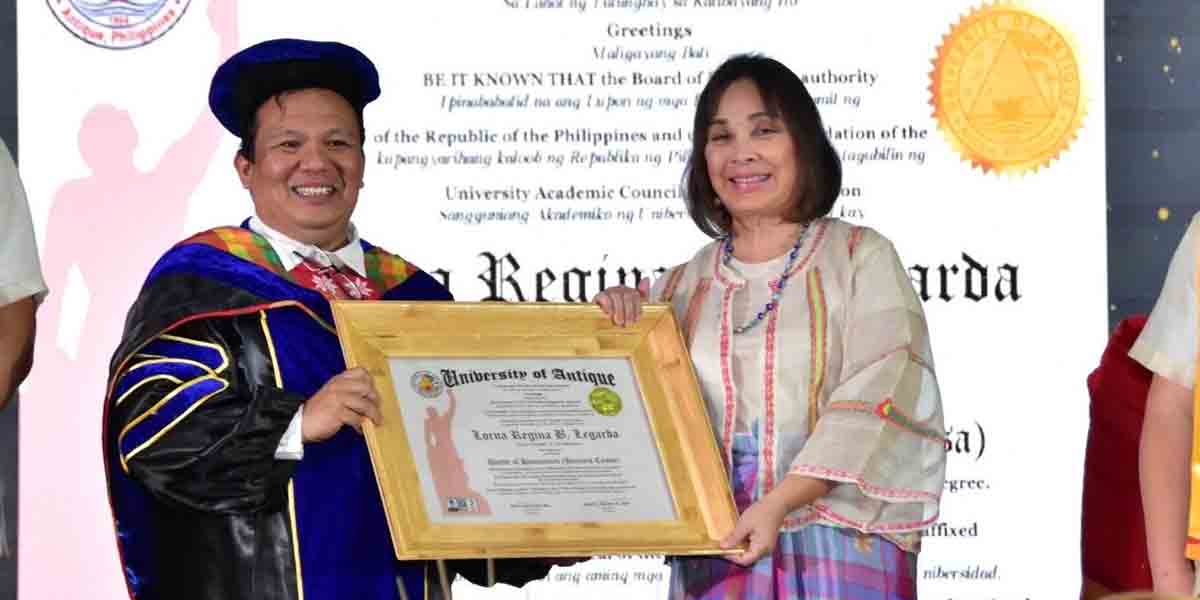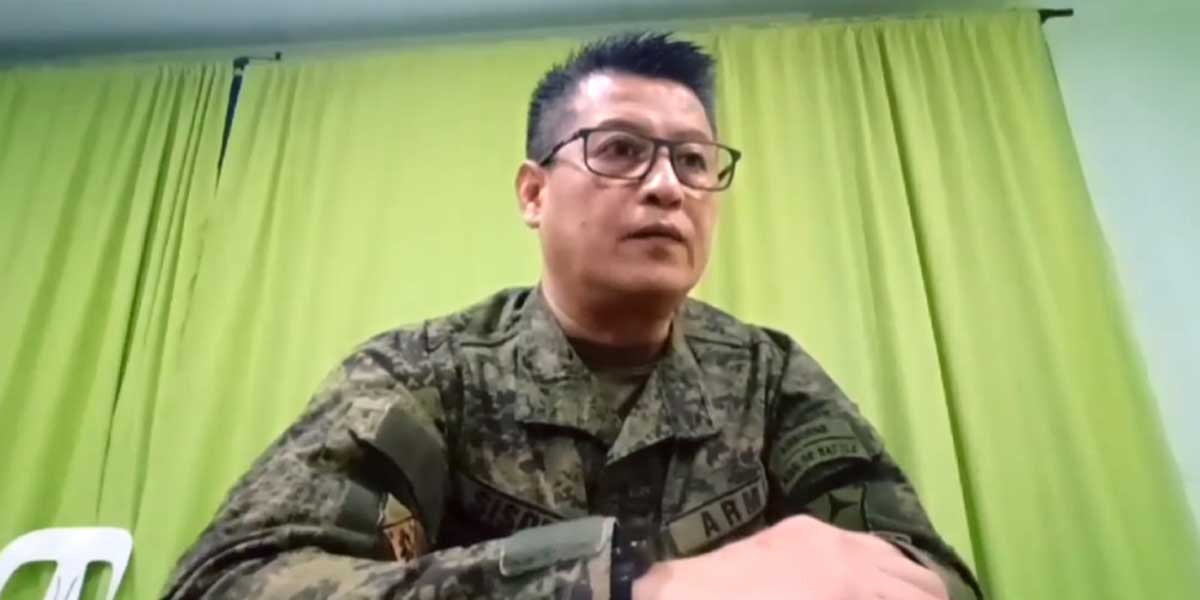
By Joseph B.A. Marzan
A member of the Sangguniang Panlalawigan of Iloilo on Monday confirmed that the provincial board will conduct committee hearings soon on projects funded through the National Task Force to End Local Communist Armed Conflict (NTF-ELCAC) in the province after some local officials expressed dismay.
Board Member Rolando Distura (4th district), chairperson of the SP’s infrastructure committee, said the probe was triggered by reports he received from municipal officials of Leon town over some projects there.
This, after they visited several of the projects in the town including a bridge at Brgy. Talacuan and a box culvert at Brgy. Biri Norte, which they saw were unfinished but did not have any workers.
The Talacuan bridge was the subject of Board Member Rolito Cajilig’s (2nd district) privilege speech in August after it was found to be unfinished a year after its scheduled completion date on Aug. 31, 2021.
He said that they were saddened by the state of these projects, citing the burning of a P7-million backhoe in Sipalay City, Negros Occidental earlier in March of this year.
Distura said that a privilege speech by 2nd district Board Member June Mondejar just this month, which sought to investigate the NTF-ELCAC’s projects in the town, also sparked the investigatory hearings.
The provincial board’s public information page, Sanggunian in Action, stated that Mondejar’s privilege speech had been referred to the Infrastructure and Public Order and Security committees.
“I talked to Board Members [Mondejar and Cajilig], together with [Leon] town officials that we would push for a joint committee hearing, also due to [Mondejar’s] privilege speech,” Distura said in a radio interview.
He added that they scheduled the probe after their first session in 2023 due to time constraints brought forth by the Christmas season, as well as the consolidation of other NTF-ELCAC projects across the province.
“We sought to consolidate this, but we were pressed for time because it was Christmas already, I thought that a committee hearing wouldn’t be effective if resource persons wouldn’t be able to attend,” he remarked.
Distura said that they would re-examine the steps and processes taken by the provincial government, as implementors of the projects, from procurement to execution, supervision, and monitoring.
“We’ve observed in conformity with other members of the [provincial] board that there were projects that the residents wanted but were unavailable, like water systems without nearby water sources, and there were also those where there were limited capabilities to manage, like rice mills, who would operate and manage them? These are the challenges that we saw, and we should also look further,” he said.
Distura also said that since the provincial government may be overwhelmed with these projects, if the municipal governments may be able to implement and manage these projects, the funds should be downloaded straight to them.
“We just have to look at the local capacity if they can do it. If it’s highly technical, then the province can do it,” the board member stated.
Local Budget Circular No. 135 of the Department of Budget and Management, dated January 20, 2021, indicated Leon as the biggest beneficiary of the NTF-ELCAC’s Local Government Support Fund-Support to Barangay Development Program (LGSF-SBDP).
The town was allocated a total of P280 million, with P20 million each allocated to 14 villages, including Brgys. Ayubo, Baje, Banagan, Barangbang, Cararaan, Coyugan Sur, Dorog, Gines, Manampunay, Marirong, Nalbang, Paga, Tacuyong Norte, and Tacuyong Sur.
The 2021 LGSF-SBDP was allocated in the national budget and downloaded to provincial governments, for implementation in barangays that had been “cleared” of alleged communist rebels, with projects related to the following areas:
– Farm-to-market roads;
– School buildings;
– Water and sanitation system;
– Health stations;
– Rural Electrification;
– Reconstruction, rehabilitation, repair, and other similar projects in connection with the occurrence of natural or human-induced calamities, epidemics, crises resulting from armed conflicts, insurgency, terrorism, and other catastrophes;
– Housing;
– COVID-19 vaccination, immunization, and other health-related projects;
– Agriculture, livelihood, and technical-vocational trainings and projects; and
– Assistance to indigent individuals or families in any of the following forms of assistance: Medical, Burial, Transportation, Food, Cash for Work, and Educational.
The task force’s budgets have been mired in intense scrutiny since their creation in 2018 via Executive Order No. 70 by then-President Rodrigo Duterte, with their proposed P10-billion budget for 2023 initially slashed in the House of Representatives but was later reinstated in the bicameral conference committee.
The NTF-ELCAC was created to institutionalize a “whole-of-nation” approach, supposedly to end the conflict with communist groups, particularly the Communist Party of the Philippines (CPP) and its armed wing, the New People’s Army (NPA).

